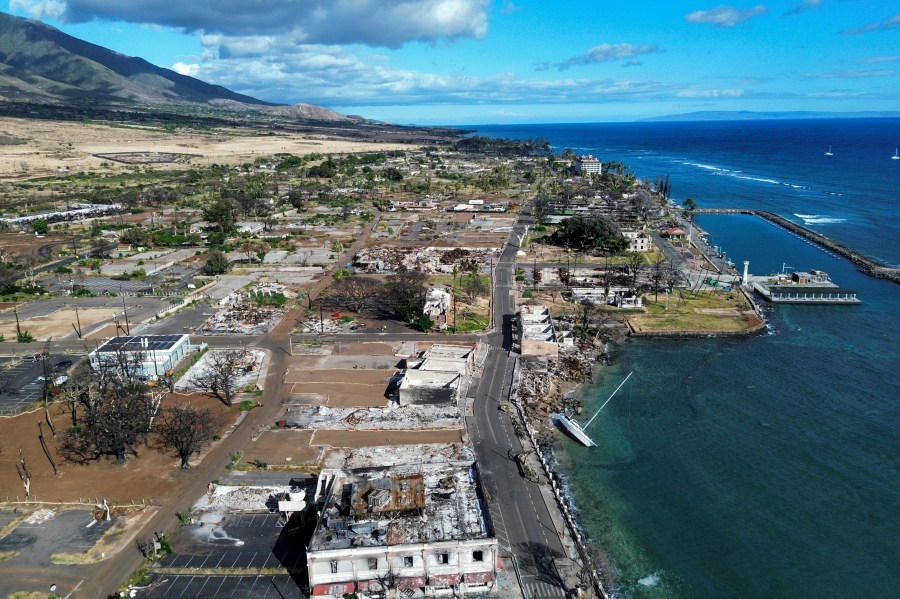HONOLULU (KHON2) — In the wake of the August 2023 wildfires that devastated Lāhainā and much of West Maui, a sharp and deeply troubling trend has emerged: a surge in suicide and overdose deaths unlike anything Hawaiʻi has seen in nearly a decade.
A new study led by the University of Hawaiʻi at Mānoa has confirmed what many suspected in the aftermath of the fires. Rates of suicide and drug overdose skyrocketed, and Maui was hit hardest.
“We looked at both suicide and overdose together,” said Dr. Keawe‘aimoku Kaholokula, JABSOM Dept. of Native Hawaiian Health Chair. “Often we don’t know the reason for the overdose —whether it was an attempted suicide or otherwise. So, we thought we looked at both, as signs of emotional distress.”
Using national vital statistics data from 2014 to 2023, researchers found a 46% increase in suicide and overdose deaths across the state in August 2023. On Maui, the jump was even more extreme at 97% higher than previous months.
“When we look at just suicide alone for that month, it was two times higher on Maui than any other county,” Dr. Kaholokula said. “It suggests the immediate effect that something like this has in our communities.”
The psychological and emotional impact, Dr. Kaholokula said, wasn’t limited to Maui residents alone.
“It affected all of us,” he said. “We are still a close-knit community. We have family, friends, colleagues who are on Maui. And that affected us across all the islands.”
Immediate crisis and long-term lessons
The study underscores the need for faster mental health responses during disasters. Historically, support has focused heavily on physical needs. That of food, shelter and safety typically take priority. These still matter, Dr. Kaholokula said, but so does emotional protection.
“In the past, we thought it takes a while to build up to that point. So, there’s time for that,” he explained. “But what this data suggests is, no, that’s pretty immediate. And we need to have a plan in place.”
The study also found a 41% spike in calls to the 988 Suicide & Crisis Lifeline immediately after the fire. Maui’s suicide rate rose to 182% higher than the rest of the state.
“[Disaster] plans should focus on the psychological and emotional impacts communities face, including hopelessness, cultural disconnection and stigma,” Dr. Kaholokula said. “There needs to be a plan for suicide and substance abuse prevention, and other mental health support.”
Recovery brought strength, but some are still left behind
In the months following the fire, a wide network of local and state efforts provided support for recovery. Dr. Kaholokula said those initiatives mattered.
“All the initiatives, all the community-based, government-supported response and recovery efforts… huge and had a very positive impact, no doubt,” he said. “The resiliency of our community is coming together and what we can overcome.”
Still, not everyone has access to support.
“There are people still struggling,” he said. “People that either are not getting the resources they need, for whatever reason. In this current federal environment, there are perhaps people that need resources but are afraid to approach people for that, because of fear, for whatever reason.”
Systemwide gaps remain
The report has become a call to action for state leaders.
“We have to have a plan in place during the recovery in the immediate phases of something like this,” Dr. Kaholokula said. “To address not just physical safety and security, but the emotional safety and security for folks.”
One challenge is the lack of professionals who can provide care.
“We have a tremendous workforce shortage,” Dr. Kaholokula said. “It’s very short, especially there in Maui. It’s about 43%.”
That includes both medical and behavioral health professionals. And the two, he said, are linked.
“Behavioral health goes hand in hand with physical health,” he said. “Some of the risk factors for physical health due to diabetes are mental health issues such as depression.”
Looking ahead
The tragedy of Maui’s fires cannot be undone. But the lessons they offer, if taken seriously, may help protect communities in the future.
“We really need to get a handle on this because we have to be prepared for the next one,” Dr. Kaholokula said. “We have to build that capacity.”
You can click here to learn more about the research.
If you or someone you know is struggling, help is available 24/7. Call or text the 988 Lifeline for confidential support. You’re not alone. It’s free.
